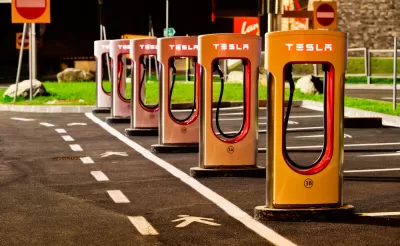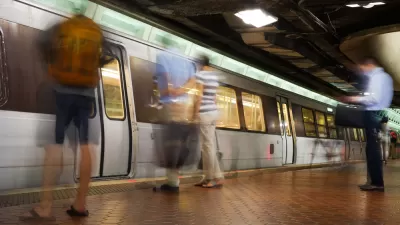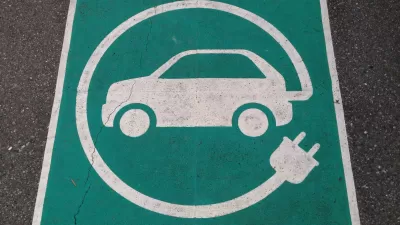A new report shows that long-term federal investments in electric vehicles could promote significant growth in the sector as the nation moves toward reducing GHG emissions.

In a report from the Rhodium Group authored by John Larsen, Ben King, Hannah Kolus, and Emily Wimberger, the authors "assess the energy system and emissions impacts of potential new, long-term federal investments in on-road decarbonization and how investments might interact with potential new vehicle regulations." According to their research, "federal investment in the form of long-term extensions of current tax credits coupled with a build-out of charging infrastructure can catapult electric vehicles (EVs) from 2% of all light-duty vehicle (LDV) sales in 2020 to as high as 52% of all LDV sales in 2031."
With the transportation sector as the leading source of greenhouse gas emissions(representing 31% of the U.S. net total), its decarbonization is a crucial step toward reducing overall GHGs and fighting climate change. "Any action to decarbonize transportation through electrification will require ambitious and sustained effort to accelerate deployment of electric vehicles as quickly as possible." Yet "[u]nlike the electric power sector where a hard pivot from fossil energy to clean energy is entirely doable, it will take decades to replace all of the conventional gasoline and diesel vehicles on the road today with electric models." To get conventional fossil fuel vehicles off American roads, "every vehicle sale matters in the race to electrify and decarbonize transportation." According to the authors, robust investment in U.S. manufacturing and clean transportation at the federal level could "get the nation a few miles further down the long road of decarbonization."
FULL STORY: Pathways to Build Back Better: Investing in Transportation Decarbonization

Maui's Vacation Rental Debate Turns Ugly
Verbal attacks, misinformation campaigns and fistfights plague a high-stakes debate to convert thousands of vacation rentals into long-term housing.

Planetizen Federal Action Tracker
A weekly monitor of how Trump’s orders and actions are impacting planners and planning in America.

Chicago’s Ghost Rails
Just beneath the surface of the modern city lie the remnants of its expansive early 20th-century streetcar system.

Bend, Oregon Zoning Reforms Prioritize Small-Scale Housing
The city altered its zoning code to allow multi-family housing and eliminated parking mandates citywide.

Amtrak Cutting Jobs, Funding to High-Speed Rail
The agency plans to cut 10 percent of its workforce and has confirmed it will not fund new high-speed rail projects.

LA Denies Basic Services to Unhoused Residents
The city has repeatedly failed to respond to requests for trash pickup at encampment sites, and eliminated a program that provided mobile showers and toilets.
Urban Design for Planners 1: Software Tools
This six-course series explores essential urban design concepts using open source software and equips planners with the tools they need to participate fully in the urban design process.
Planning for Universal Design
Learn the tools for implementing Universal Design in planning regulations.
planning NEXT
Appalachian Highlands Housing Partners
Mpact (founded as Rail~Volution)
City of Camden Redevelopment Agency
City of Astoria
City of Portland
City of Laramie





























